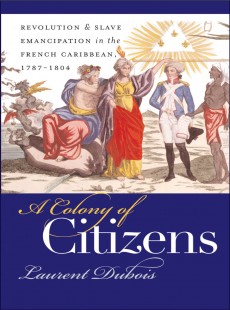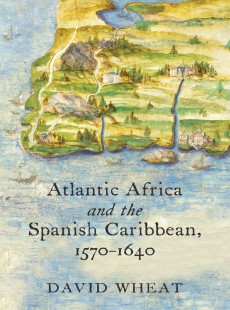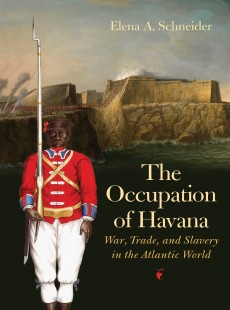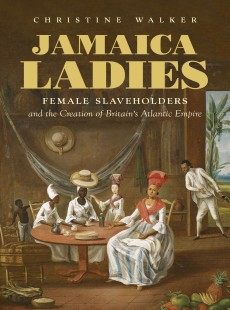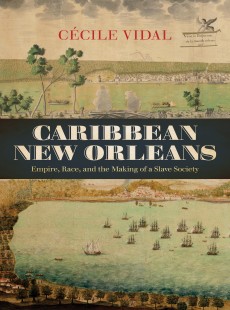
Caribbean New Orleans
Empire, Race, and the Making of a Slave Society
Cécile Vidal
 Publisher: Omohundro Institute
Publisher: Omohundro Institute
Imprint: OIEAHC
Published: 04/2019
Pages: 552
Subject: History
Cloth ISBN: 9781469645186
eBook ISBN: 9781469645193
DESCRIPTION
Combining Atlantic and imperial perspectives, Caribbean New Orleans offers a lively portrait of the city and a probing investigation of the French colonists who established racial slavery there as well as the African slaves who were forced to toil for them. Casting early New Orleans as a Caribbean outpost of the French Empire rather than as a North American frontier town, Cécile Vidal reveals the persistent influence of the Antilles, especially Saint-Domingue, which shaped the city's development through the eighteenth century. In so doing, she urges us to rethink our usual divisions of racial systems into mainland and Caribbean categories.
Drawing on New Orleans's rich court records as a way to capture the words and actions of its inhabitants, Vidal takes us into the city's streets, market, taverns, church, hospitals, barracks, and households. She explores the challenges that slow economic development, Native American proximity, imperial rivalry, and the urban environment posed to a social order that was predicated on slave labor and racial hierarchy. White domination, Vidal demonstrates, was woven into the fabric of New Orleans from its founding. This comprehensive history of urban slavery locates Louisiana's capital on a spectrum of slave societies that stretched across the Americas and provides a magisterial overview of racial discourses and practices during the formative years of North America's most intriguing city.
ABOUT THE AUTHOR
Cécile Vidal is professor of history at the Ecole des Hautes Etudes en Sciences Sociales in Paris.
AWARDS
Lionel-Groulx Prize, Institut d'Histoire de l'Amérique française (2020)
REVIEWS
"Interpretively capacious, Caribbean New Orleans brings the history of the city home. By mapping out the deep imbrications between the islands of the Caribbean and the social, cultural, political, and economic life in New Orleans, Vidal deepens our understanding of slavery, race, and urban life in the Atlantic world."
--Laurent Dubois, Duke University
"Prodigiously researched and at once nuanced and sweeping, Caribbean New Orleans is a brilliant achievement, reaching far beyond the city at its center to offer a compelling analysis that integrates imperial aspiration with the emergence of social and racial systems in the wider Atlantic world. A true tour de force."
--Emily Clark, Tulane University
"In this deeply erudite and beautifully written evocation of New Orleans as a port city on the periphery of the Caribbean, Cécile Vidal, the leading French Atlantic historian of our times, transforms the history of this colonial capital from that of a marginal and exotic outlier of American experience into a vital element of a larger Caribbean world. By illustrating how race infiltrated every aspect of life, her sophisticated and wide-ranging account of New Orleans points the way for a new and more convincing interpretation of how racial differentiation and white supremacist ideology evolved in America."
--Trevor Burnard, University of Melbourne
“Caribbean New Orleans is unparalleled in the historiography of the Crescent City in terms of its clever draw on archival materials. . . . This skillful exercise was never, to our knowledge, executed before. . . . A thorough study that all New Orleans enthusiasts should read.”
--Journal of Early American History
"By stressing the continuum of racial identities and concomitant legal and social expectations tied to race, [Vidal's] argument complicates the historiographic dichotomy of two-tiered racial societies (white over black) versus three-tiered (white, free people of color, enslaved black).”
--Choice
“Wide-ranging and deeply researched…Because Vidal contests prevailing scholarship in such a provocative fashion, her book will no doubt stimulate considerable discussion by historians of slavery for the foreseeable future, and deservedly so.”
--William and Mary Quarterly
“An in-depth examination of how race making systematically shaped the history of an early American city. . . . [E]ssential reading for scholars of early New Orleans.”
--H-Atlantic
RELATED TITLES





